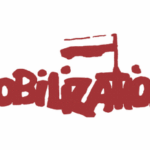A talk based on the book “The Poor’s Struggle for Political Incorporation” by Federico Rossi for Cambridge University Press 2017.

It was through contentious political dynamics that the poor and excluded strata of society claimed to be recognized as members of society. The disruption produced by social movements and their allies was an important component in the production of the conditions for the first and second waves of incorporation in Latin America. Protests, marches, pickets, strikes, and sometimes–more violent methods have been part of the relational process of building and rebuilding institutions that modified the relationship of the popular sectors with the state. These contentious dynamics, in some occasions, pushed the elites to define a new “social question,” innovating in both social and repressive policies to deal with the claim of the popular sectors for being (re)incorporated in the sociopolitical arena.
The popular movement’s repertoire of strategies for social change has been associated with different types of movements in each historical period of Latin America. The labor and/or peasant movements, the main organizers of the popular sectors in their claim for well-being through reform or revolution, were in the liberal period (1870s–1930s) that preceded the first incorporation (1930s–1950s). In the second incorporation (2000s–2010s), a different type of movement emerged in the neoliberal period (1970s–2000s) as the central popular actor in the quest for stopping the exclusionary consequences of authoritarianism and neoliberalism while claiming for the incorporation (again) of the popular sectors as citizens and wage earners. The emergence of what I define as “reincorporation movements”–a type of movement that has built upon but simultaneously decentered labor-based actors–is the result of important transformations that occurred in the socio-political arena between the two waves of Latin American incorporation of the popular sectors.
28/10/2025

Journal Article - 2025
Journal Article - 2023
Journal Article - 2023
Journal Article - 2023
Journal Article - 2023
Monograph - 2023
Monograph - 2022
Monograph - 2022
Journal Article - 2021
Journal Article - 2021